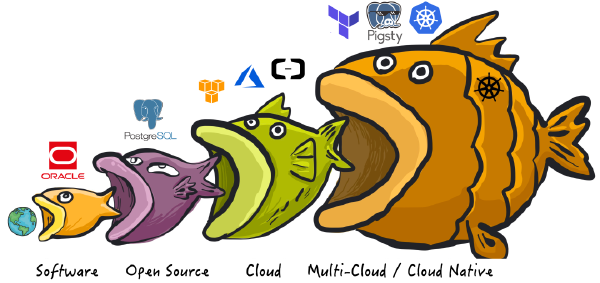While Swedish Ma and I disagree sharply on cloud databases VS DBA issues, we can reach consensus on one point: domestic public cloud vendors really make garbage. In Ma’s words: “Alibaba-Cloud is a legitimate cloud with poor engineering quality, but Tencent Cloud is a bunch of amateur salespeople plus business coders playing games.”
Background#
I have software hosted on GitHub, providing 1MB source code packages and 1GB offline software package downloads. Since mainland users can’t download from GitHub domestically, I needed a domestic download address, so I used Tencent Cloud’s COS (Object Storage) and CDN (Content Delivery Network) services.
My CDN intentions were simple: 1. Acceleration, 2. Cost savings. Internet traffic fees are usually 0.8 yuan per GB, using CDN traffic packages can save substantial traffic costs by half. Since CDN is exclusively for domestic users, I only bought domestic traffic packages. It worked reasonably well until late February, when I suddenly discovered some anomalous charges.
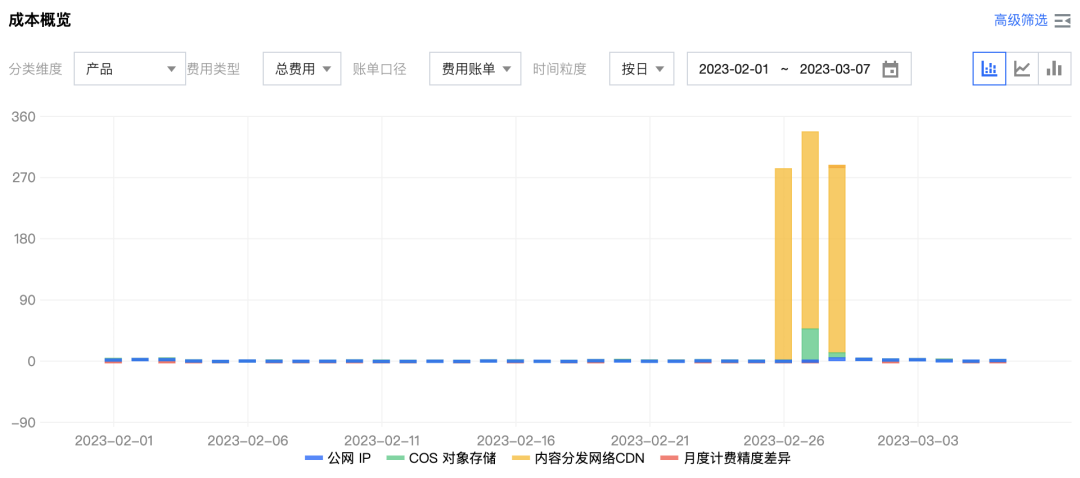
Clicking in, I saw CDN charged several hundred yuan. I thought maybe some channel made downloads popular? So I entered the data statistics analysis interface and saw that during this period, total software package downloads were less than 100GB, at most tens of yuan — how could I be charged hundreds?
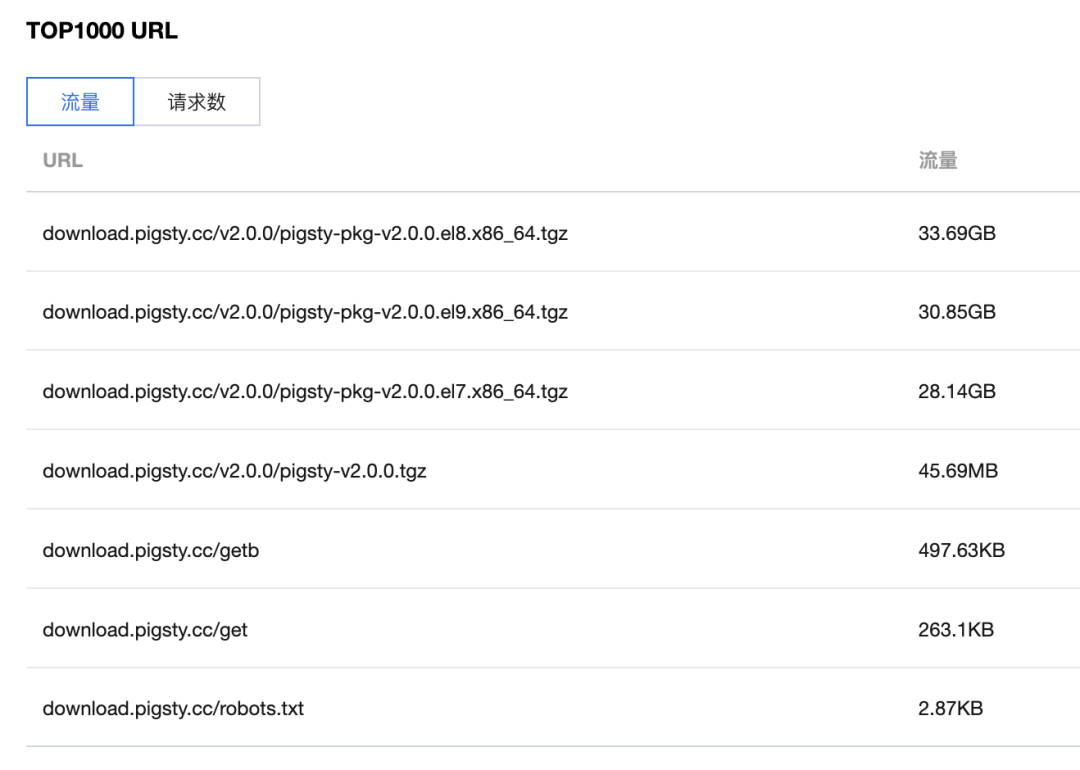
Clicking for analysis — good grief, 1TB access traffic, all from “overseas other” — what the hell?
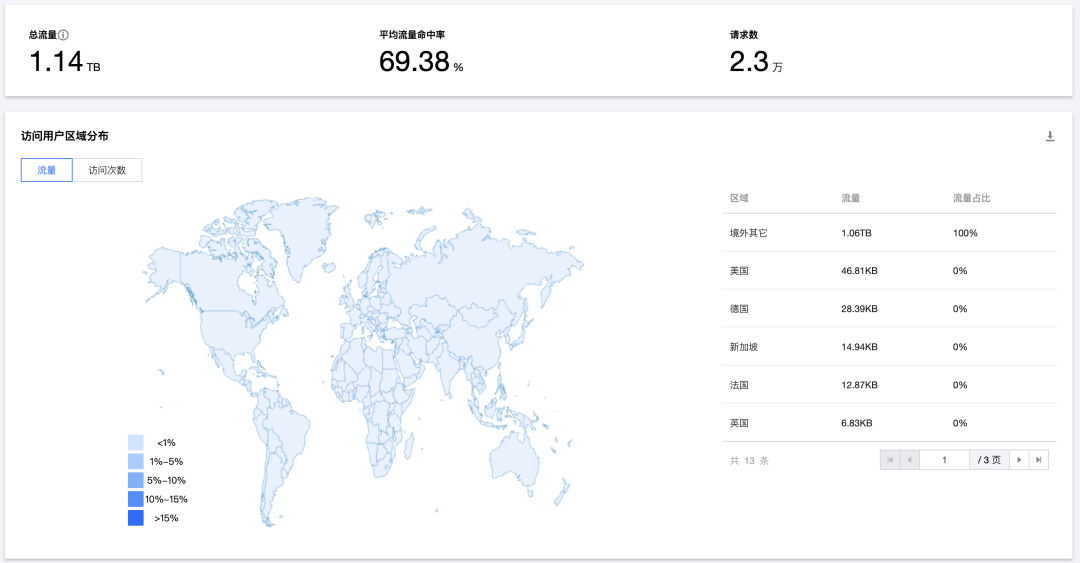

So I called Tencent Cloud customer service:
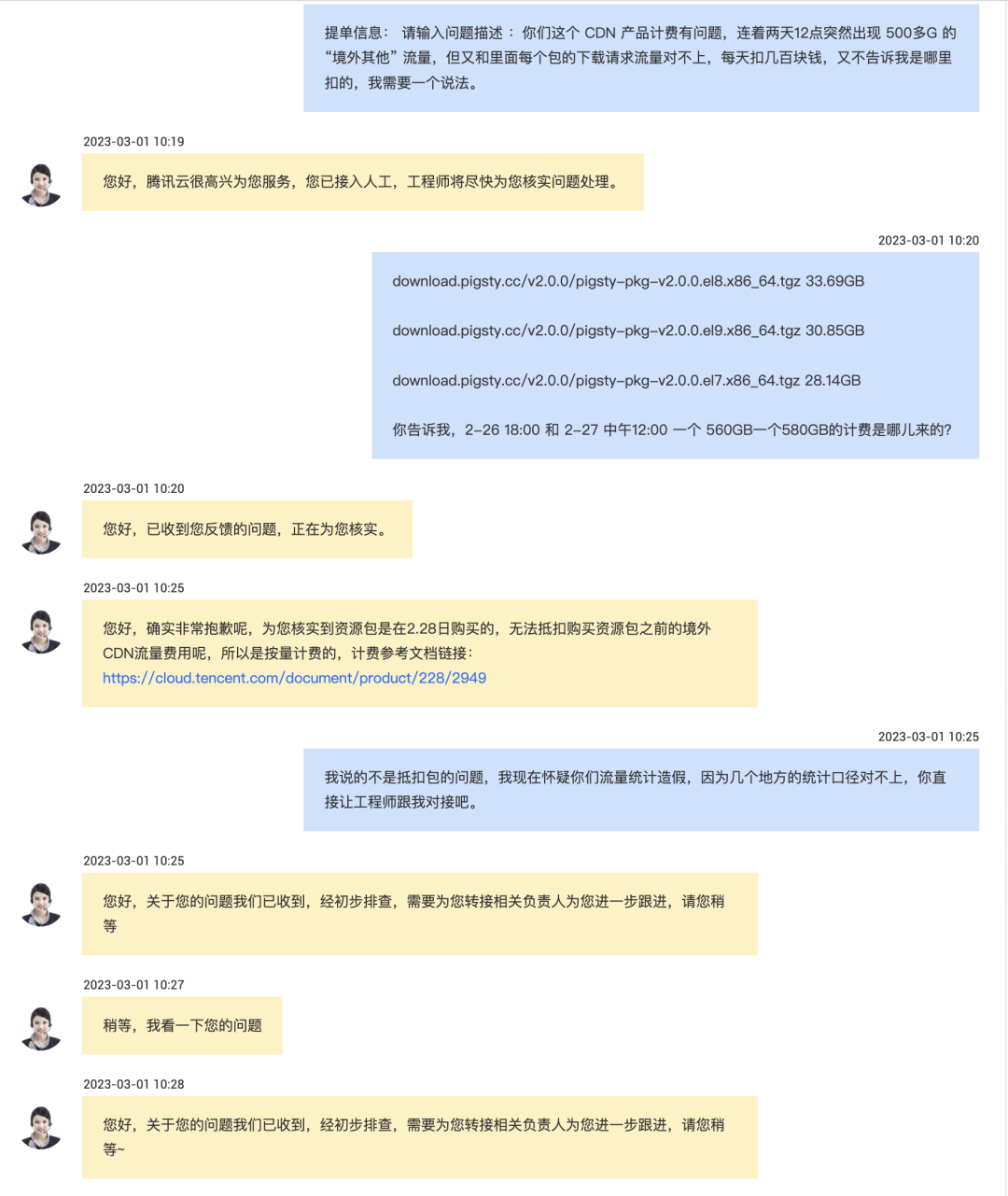
Deflection x1: Our TOP isn’t accurate, you need to check logs.
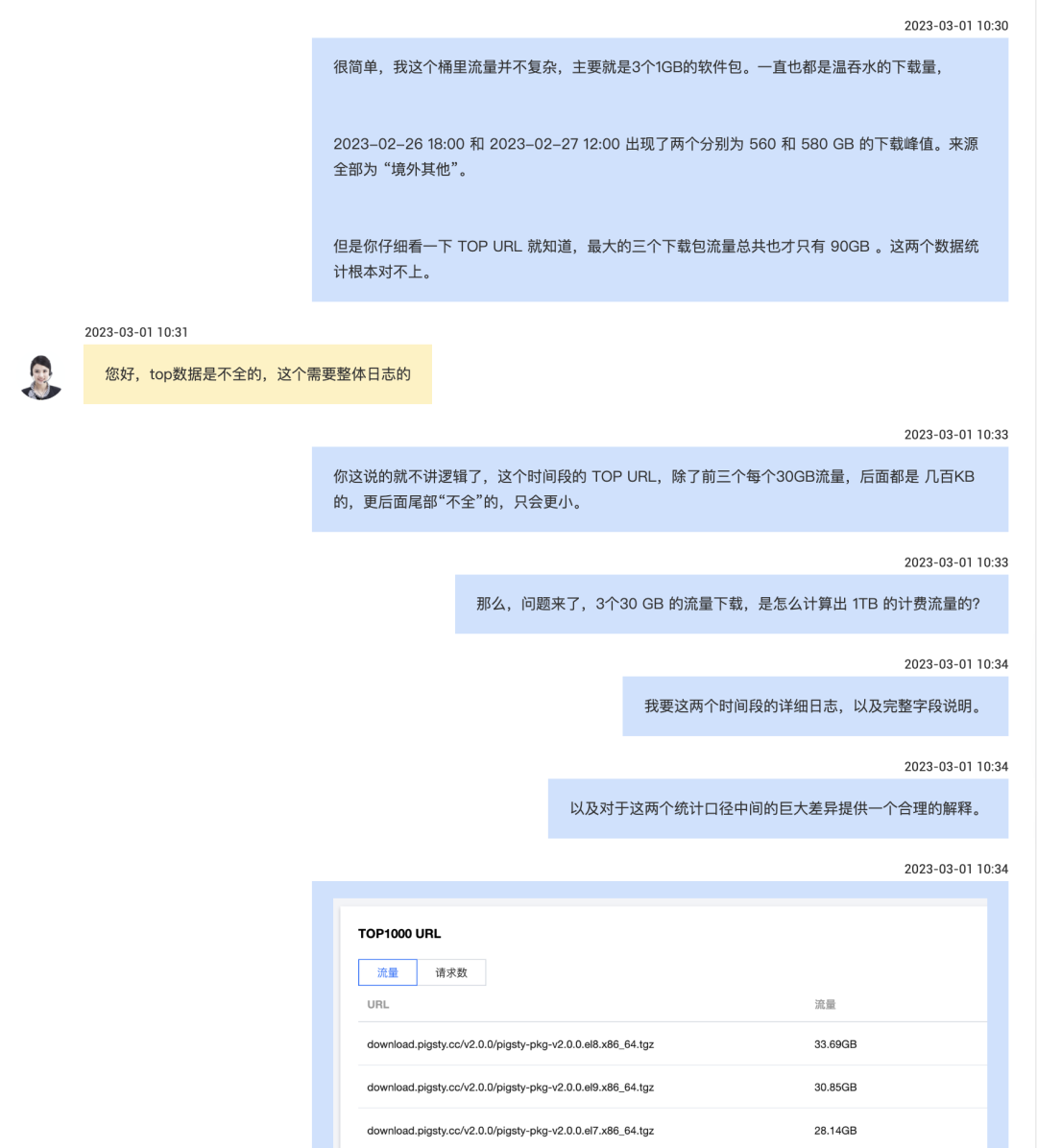
So I downloaded a log copy to see who was bored enough to brute-force attack. Result: a bunch of requests without even client IP addresses.
Deflection x2: Customer service said this is probably an “attack”! So scary!
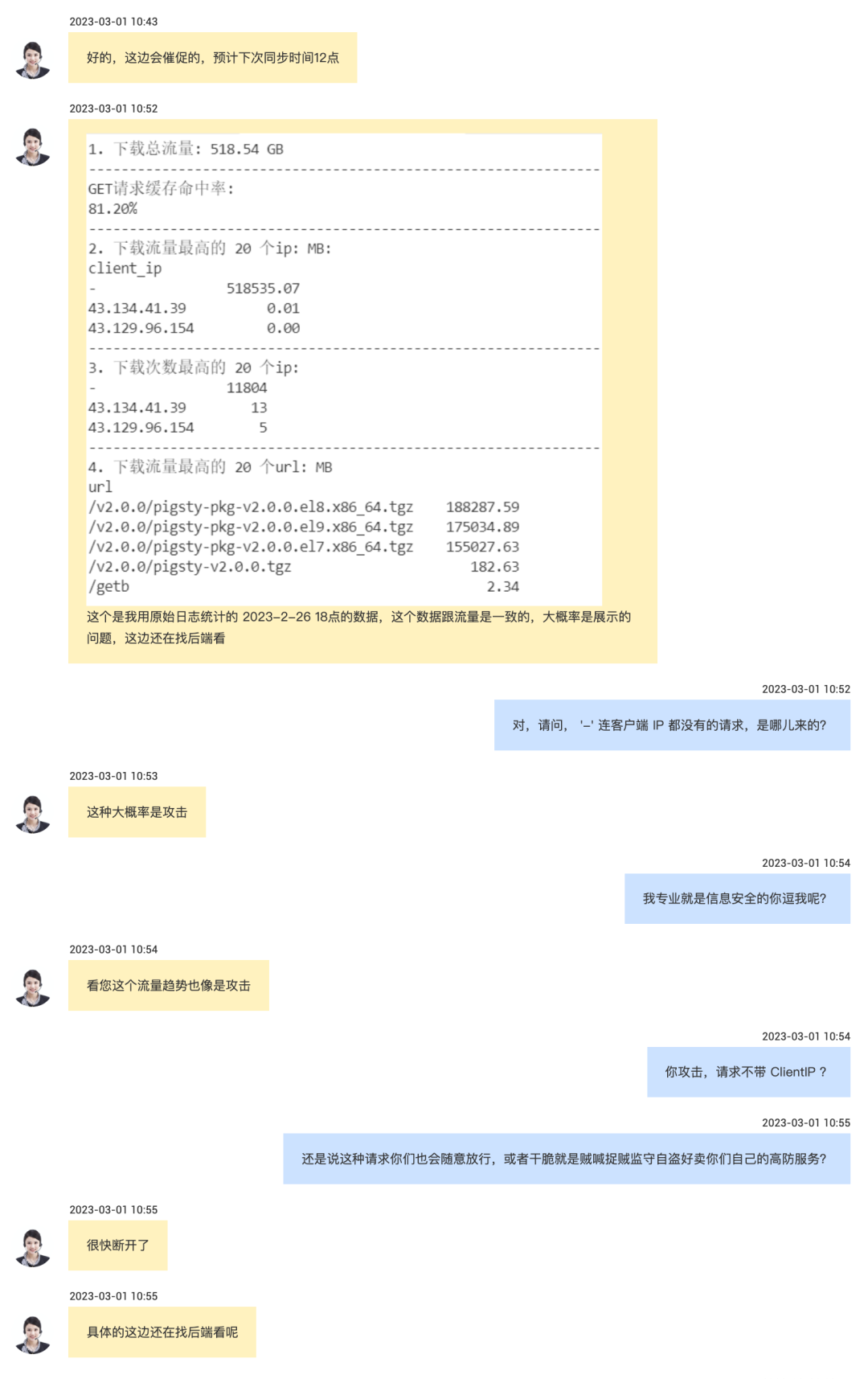
This rhetoric trying to fool me? Uninformed users hearing “attack” might get scared into buying public cloud vendors’ “high-defense services.”
After going in circles for another half hour, they finally told me the real reason: traffic fees were deducted for “warming up”. So these requests without “source IPs” finally revealed the truth: turns out it’s “guarding and stealing, thief crying thief” — your own system came to brute-force my traffic!
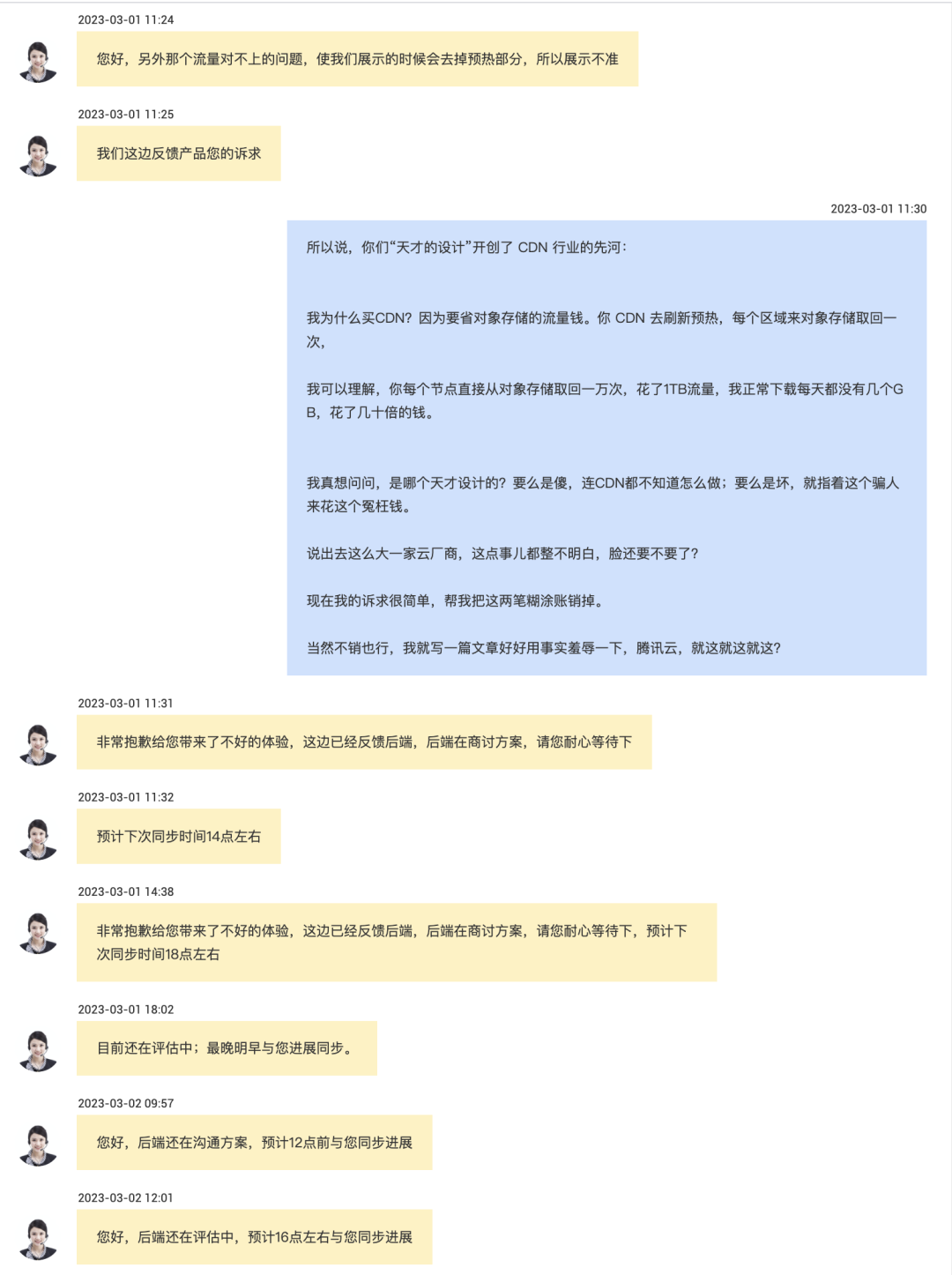
Engineer phone communication explained: Our CDN warming works like this — all CDN nodes come to origin for requests, so we got these 20,000 requests and 1TB traffic.
Hearing this explanation, I nearly burst out laughing. Why do I buy CDN? To save object storage traffic costs. CDN refreshing and warming is cloud vendor internal system traffic — why should users pay for it? But your one refresh warming cost more than a year’s worth of direct object storage downloads.
Fine, let’s say warming requires payment — an engineering-logical approach would be each major region requesting object storage origin once, then distributing and syncing to each terminal node. Paying several times traffic fees, I wouldn’t mind. 1GB software costing 10GB warming, customers wouldn’t complain.
Tencent Cloud CDN is different — warming a 1MB/1GB software package, each terminal node directly requests, generating 1TB “warming traffic.” At 0.8 yuan per 1GB traffic fee, hundreds of yuan vanished. More absurd: my CDN serves mainland users, overseas users don’t need it — direct GitHub downloads work fine — yet all this traffic went “overseas,” and pre-purchased domestic traffic packages couldn’t offset it at all. Tencent Cloud’s documentation never mentioned the volume and origin of this “warming.” I believe this constitutes factual fraud and malicious pig-butchering schemes, far worse than 《Are Cloud Databases Intelligence Taxes?》.
So a simple 1MB/1GB software package going through CDN distribution, which might normally cost a few yuan daily, became hundreds of yuan with one button click. Hiding internal traffic well on monitoring charts; stuffing internal traffic that should be free onto users in billing logic.
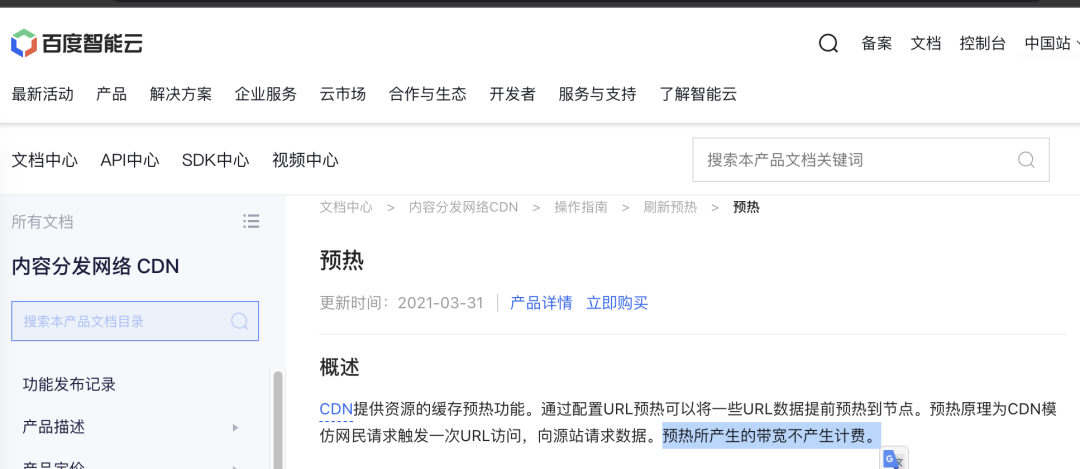
CDN warming internal traffic — how dare they charge users?
A few hundred yuan cost doesn’t hurt me, but as a user, I feel my intelligence was insulted. Tencent Cloud suggested refunding half — how about full refund? I didn’t take a cent — I just want to write an article telling everyone how crappy and idiotic this product is.
Alibaba-Cloud, whatever else, at least gets some respect from me in certain areas. But Tencent Cloud’s performance truly disgraces Chinese public cloud — such a large company coming out to do cloud without understanding such basic things. No wonder people say:
China has no cloud computing, only IDC 2.0
Coming out to sell like this — better wash up and sleep early.
Extended Reading#
For more of Tencent Cloud’s brilliant performances, enjoy previous articles from the Cloud Computing Shotgun series:
[1] Why Does Tencent Cloud Team Use Alibaba-Cloud Service Names?
[2] Are Customers Lousy, or Is Tencent Cloud Lousy?
[3] Tencent Cloud: From Getting Started to Giving Up






